Anxiety has been part of my life for so long that I don't really know who I am without it. I have obsessive-compulsive disorder and also just a high-strung, anxious nature. When things are going well, I tend to take a glass-half-full perspective and link my drive and work ethic to the ever-present anxiety that pushes me to always do more. But when things are going badly, sometimes it's hard to function like a regular person because I'm so paralyzed with fear.
For those times, I've been prescribed Xanax. And it helps, for sure. But the thing is, I get nervous about taking it. (Yes, that's right—I get anxious about taking the medication that's supposed to make me less anxious. I am a disaster, y'all.)
Even at the smallest doses, it makes me sleepy, so I don't like to take it during the day. And although nighttime is usually when my anxiety peaks, even then, I don't want to take it often because I'm afraid of becoming dependent.
CBD oil is often used as a natural remedy for generalized anxiety and social anxiety disorders, with many people reporting positive effects. Research has shown that CBD oil may help alleviate symptoms of generalized social anxiety disorder, making it a promising treatment option for those who struggle with social situations.
If you struggle with generalized anxiety, CBD oil might be worth a try.
What Is CBD Oil?
CBD, or cannabidiol, is a compound derived from the cannabis plant. It has gained popularity in recent years as a potential treatment for anxiety and related disorders. Anxiety disorders, such as generalized anxiety disorder, social anxiety disorder, and post-traumatic stress disorder, affect millions of people worldwide. Symptoms can include excessive worry, fear, and nervousness, and can interfere with daily life.
Research suggests that CBD oil may be an effective way to manage generalized anxiety disorder symptoms. In a simulated public speaking test, individuals who took CBD showed lower levels of anxiety compared to those who took a placebo. Clinical data also suggests that CBD may have anxiolytic effects, meaning it can help relieve anxiety. Additionally, relevant animal studies have shown promise in the use of CBD for treating anxiety-related disorders.
CBD products come in various forms, including oils, tinctures (here is a recipe to make your own), capsules, and gummies. You can even use CBD oil in the bath. When it comes to anxiety, many people prefer broad-spectrum CBD oil, which contains a range of cannabinoids and terpenes, but no THC, the psychoactive compound in cannabis. Full-spectrum CBD oil, on the other hand, contains small amounts of THC, which some people may prefer to avoid.
Dosage of CBD can vary depending on the product and the individual. It is important to start with a low dose and gradually increase it until you find the right amount for you. It is also important to note that not all CBD products are created equal. Always look for a reputable company that uses high-quality hemp-derived CBD.
While research into the potential health benefits of CBD is ongoing, many people have reported success in using CBD to manage anxiety symptoms. It is important to speak with a healthcare provider before starting any new treatment for anxiety or other mental health conditions.

CBD for anxiety—does it work?
A mom friend who, like me, suffers from OCD, mentioned she was taking CBD for anxiety. My interest was piqued based on her experience—when her anxiety felt particularly out-of-control, the CBD would put a stop to the spiraling.
I asked my doctor about it, and she was dubious. While she gave the approval for me to give it a try, she cautioned that because marijuana is illegal, CBD hasn't been researched enough to determine its impact on anxiety.
While this is true, the research that has been done on CBD (short for cannabidiol) looks promising [source]. There's a growing body of evidence demonstrating CBD's usefulness for treating anxiety-related disorders [source]. It seems to have a calming effect on the central nervous system [source], which gives it the potential to treat a multitude of disorders.
In 2018, the FDA unanimously recommended approval for an epilepsy drug made from CBD called Epidiolex [source], and it is now the first CBD medicine available in the U.S. [source]. Because of its FDA approval, it is now regulated and does not have any of the safety concerns that other forms of CBD carry. A few studies have been carried out that show inaccuracies in the labeling of CBD products sold online [source] and from retail outlets [source], revealing large ranges of variability in the product contained.
It took me a while to actually take the plunge and try CBD for anxiety because I had trouble finding sources that felt trustworthy. (As someone who quite literally obsesses over product purity—it's one of my OCD fixations—this is the best argument I can think of to legalize marijuana. Legalization means regulation and research [source]!)
What helped me was:
- Actually reaching out to the manufacturers to ask questions. This was huge for me. If you have a good BS meter, I'd recommend taking this step. I learned a lot just by doing that.
- Getting recommendations. I asked friends, the staff at my local grocery co-op, and checked Reddit and internet message boards. Plus, I Google everything!
- Treating CBD like other health supplements. I always buy supplements that share third-party testing results on their websites, are transparent about their sourcing, and manufacture their products in the United States or Canada. The CBD industry is not regulated, and thus the safety and efficacy of products on the market are not guaranteed, so you need to do your homework [source].

Just to be clear, CBD doesn't get you high. The compound that gives you that feeling when you use marijuana is called THC. And if you feel high after taking CBD, you're probably taking a product that's impure or mixed with other elements for that purpose [source].
My Experience Taking CBD for Anxiety
Before I talk about my experience using CBD for anxiety, you may be wondering, "Is CBD even legal?!" Well, yes, it is—kind of. What's not legal in some places is CBD derived from marijuana, unless you're in a state where marijuana is legal [source].
But, if you want to get off that bandwagon altogether, you can look into CBD derived from hemp and other sources.
The first CBD product I tried was Beekeeper's Naturals B. Chill honey. This felt like a natural place to start since it was a brand I already knew and trusted. The effect was hard to describe; it wasn't so much any particular feeling, but the absence of the ever-present anxiety that's just always there for me.
I tend to carry tension in my body, and I'm never still. I drive everyone around me crazy by constantly fidgeting and bouncing my legs. The CBD made my body feel calm and quiet.
That quiet feeling was mental too. My need to multitask and inability to concentrate on anything for longer than 5 minutes gave way to intense focus. I worried that CBD, like Xanax, would render me useless, but I've actually found that taking CBD helps me with work. Unlike the Xanax, which I'd always have to time around bedtime, I feel comfortable taking CBD any time of the day.
Could it be a placebo effect? It very well could be. I don't know! All I know is that CBD seems as effective for me as my prescription. And I haven't had to take any Xanax since I started using CBD. I have two unfilled prescriptions sitting in my purse right now and a half-used bottle in the medicine cabinet.

I soon picked up a few bars of CBD chocolate (found after some intense Googling) and gummies. Now I have a stockpile ready for any time of day: honey for stirring into morning tea, a bottle of gummies to go with me in my purse, and chocolate to have after dinner to help me sleep better.
That said, I'm not taking CBD all day long, or even every day. Unfortunately, CBD is pricey, so I use it in the same way I used my Xanax—only when I really need it. When I'm having a particularly bad day with anxiety, it's usually the result of my mind latching onto some random thought and not letting go. The CBD helps me let those thoughts pass through rather than allowing them to snowball into something paralyzing.
It feels a little strange—even kind of scary—to be talking about this because CBD isn't yet mainstream. And while slathering it on your skin is one thing, actually ingesting it is another.
But we're currently undergoing a sea change in how we talk about mental illness in this country; if we can be open about that, we should also be open about treatment options. CBD has a stigma attached to it because of its origins, but the fact that it's a non-addictive alternative to benzodiazepines and opiates makes it worth researching and taking seriously. It's not just for potheads.
Of course, all the usual disclaimers apply here. I'm not a doctor! If CBD is something you're considering, talk to your doctor! And, obviously, my experience is my own. What worked for me might not be right for you. Just make sure and do the research, so you will feel comfortable with whatever you decide to do.
FAQ
CBD oil is a type of oil that is derived from the hemp plant and contains cannabidiol (CBD) as its primary active ingredient. CBD is a non-psychoactive compound that is believed to have a wide range of potential health benefits, including reducing inflammation, relieving pain, and reducing anxiety and depression symptoms. CBD oil can be consumed in a variety of ways, including ingesting it directly, adding it to food or drinks, or applying it topically to the skin. It is important to note that CBD oil is legal in many countries, but regulations vary depending on the specific laws of each location.
CBD (cannabidiol) is a natural compound found in the cannabis plant. It has been studied for its potential therapeutic benefits, including for anxiety disorders. CBD works by interacting with the body's endocannabinoid system, which regulates various physiological processes such as mood, appetite, and sleep. Research suggests that CBD may help reduce anxiety symptoms and improve overall mood.
There are many CBD products available for managing anxiety symptoms, including CBD oils, broad-spectrum CBD products, and full-spectrum CBD products. It's important to speak with a healthcare professional to determine which CBD product may be best suited for your specific needs.
While CBD is generally considered safe, some people may experience side effects such as fatigue, dizziness, and dry mouth. Additionally, CBD can interact with certain medications, so it's important to speak with a healthcare professional before starting any new supplement regimen.
In the United States, CBD derived from hemp plants containing less than 0.3% THC (tetrahydrocannabinol) is legal at the federal level. However, regulations regarding the use of CBD products may vary by state, so it's important to research the laws in your specific location.
Related
Looking for more natural remedies to help you cope and stay healthy? You might want to try these:
This post was medically reviewed by Dr. Susanna Quasem, M.D., a child, adolescent, and adult psychiatrist in Nashville, Tennessee. Learn more about Hello Glow's medical reviewers here. As always, this is not personal medical advice, and we recommend that you talk with your doctor.
591
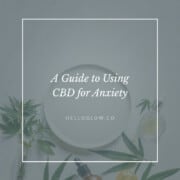
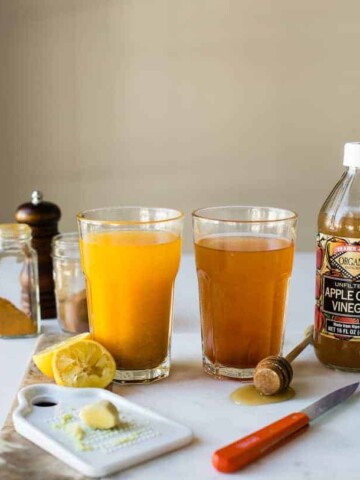
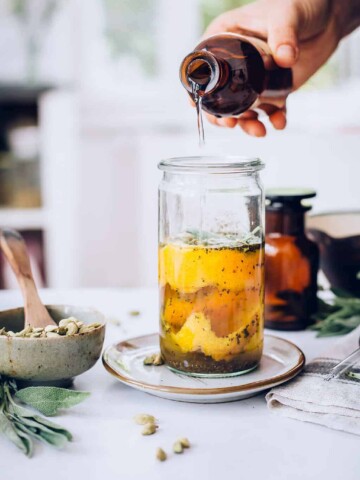
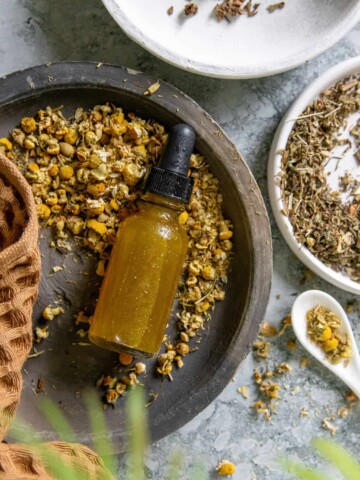
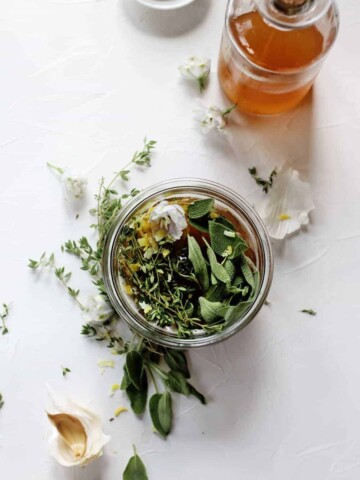

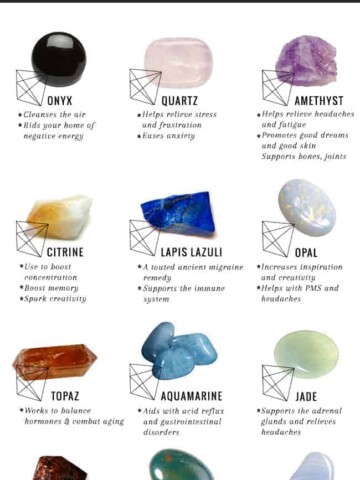
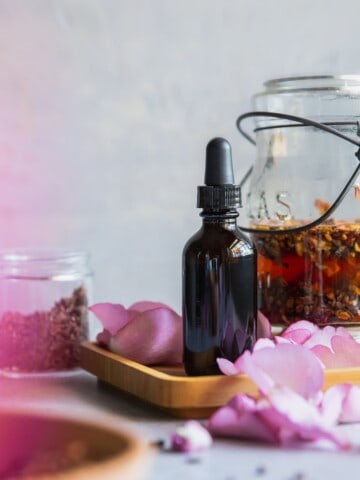
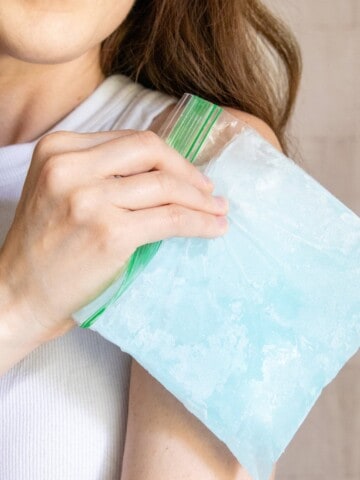
Debi F. says
Hello! I am detoxing off of Xanax prescribed to me for panic disorder.
I was on it 11 years- .05mg at bedtime daily.
Didn't know it was addictive (never used it other than as prescribed) and always notice if I missed a dose
(panic attacks!)
Recently, our State (Michigan) passed a Bill to make it illegal to prescribe Xanax if the doctor is not a psychiatrist and the patient does not have one of the disorders on their list.
Because I was never diagnosed by a psychiatrist- when my doctor retired, their replacement accused me of being an addict- had me take a drug test, then when I did NOT have a high level of Xanax in my system- accused me of selling them as opposed to taking them!
So- no more Xanax! No refills!
I am weaning myself off... 1 full dose every other night- then 1/2 dose.. now own to a full dose only 2x a week. The withdrawal has been hell- even at such a low dose! So I started using CBD oil- at bedtime and in the morning...
But the a.m dose made me a little TOO relaxed... so I am getting some other lower-dose oil.
I really think this is helping me...yes- I am still seeing withdrawal symptoms- but they are less severe now with the CBD's.... I highly recommend it if you are trying to get off Benzo's....
Br says
I'm just now discovering cbd to help treat my anxiety and depression. I'm also autistic and have ptsd from years of abuse. I take gummies and use cbd balm for body aches and pains. I used to be able to afford a very good doctor but then I fell onto really hard times and began to see a low income doctor who nearly killed me. I was on too many prescriptions that affected my weight, personality, everything. It was horrible. I had no choice but to stop going. I currently can not afford a doctor and I have major trust issues. Cbd has been an incredible help now that I am no longer on any other medications but I need treatment for my mental health. Along with physical activity, a good support system of friends and family members and healthy coping skills, cbd is helping me to live a better life.
Suzanne says
I just wanted to make a comment about the CBD oil . I recently purchased a 250 mg CBD oil that’s pure with no THC so it won’t get you high and I was looking for it for the purpose of my insomnia and for my anxiety because it says it helps with anxiety and sleep problems. I was so excited about ordering it . I was just like wow I’ve tried Xanax I tried a bunch of other different things and nothing works and so maybe this will. But I’ve taken it three times now and it actually keeps me wide-awake it does not decrease anxiety at all it gives a small calming feeling but not much at all to even feel speaking of a 1 mg dose, but it also gives a really weird feeling In my head and I personally can’t fall asleep on it . like I took it at 2 AM and it’s 8:42 AM and I’m still wide-awake and I have been awake for two days now so once again I’ll have to take a .25 Xanax just to fall asleep nothing else works and it sucks because I was hoping that this would actually work but it hasnt.
Chris says
What dose were you taking? I ask because some studies show that CBD is what they call a biphasic substance, meaning it has different, sometimes almost opposite, effects at different doses. One big example of this is that at low doses CBD can actually make you more alert and awake, whereas at higher doses it has more of a calming and sleep inducing impact.
So keep this in mind! :)
Sharon Davis says
I can tell you right now, what it said on the bottle and the site was a lie. It's not pure CBD w/o THC. It has too much THC in it along with who knows what. Been there, did that. I'm sitting here with GAD, SA, PTSD,, COPD,, Seizure d/o, hypothryoid, you name it. Major (really major major) Depression, Bipolar (or so been tagged but ..). I do know that my myelin sheath on my nerve neurons are getting eaten away and I'm losing brain mass. Kidney and liver disease, you NAME it. Looked at all of my meds and the body organs AFFECTED BY MY MEDS WERE TO BLAME. WELL, who am I to judge CBD. My faith says no, my body says, "you better hurry up while you have any life at all in you" I agree. I'm headed to Lazerus NO THC because I am on disability and can get a discount. I've looked it over with my OCD self, over and over and thinking on that. Afraid of Charlottes Web because of it's for epilepsy and I'm afraid too much THC may be added in. NO THANK YOU. THC makes me nervous as a cat on a hot tin roof. Good luck all.
Alex says
I have ultradian rapid cycling bipolar 2, PTSD, GAD, panic etc. There’s a randomised controlled study on the way for CBD for bipolar. It’ll end 2020. My doctor said I can try it but thinks it’s probably a weak anxiety medication for people with no clinical anxiety. Well, I’ve tried it and didn’t notice a difference. But I might not take enough but then enough I’ve read can trigger hypomania or depression in bipolar. Argh....
Sharon Davis says
I'm rapid cycling Bipolar I. I"ve looked back and notices (hind sight 20/20) that I didn't have so many cycles when I was in a good place in my iife. Of course that didn't happen often but I did manage to find a good relationship with my ex (he was an ass, too much drama), I've turned loose of things that would make a rock have seizures and mood swings.
All that being said. I have tried CBD and the OCD and ruminating went out the window. YIPPEE. I didn't do enough research on this particular company so it was never the same and they flat lied where they got their hemp and where and how it was processed.
Of course I ask my shrink and he turned purple saying no, no and no. Well, I"m going against him here on the first of next month if the Lord is willing.
Pat says
Thanks for your post and information. I just want to know if the B Chill would show up in my bloodstream as majurana? I would not want to use it everyday either but what if I was in a wreck and my blood tested. Would it look like I was under the influence??
Isabella says
Hi,
Thank you for sharing your experience with CBD products. I am new to the world of CBD and have been researching products to help with my painful menstrual cramps, as well as my anxiety. I read about Sunday Scaries, and the other products that you discuss but unable to find them in Canada. It looks like most of these companies are delivering to the US only. I wish that the US could deliver to Canada especially when you read so many positive reviews, and encouraging comments on how it has helped others when traditional medicine fails or has too many side effects.
I'm crossing my fingers that Sunday Scaries and other CBD products will make their way into Canada soon. Pleeeeaaassseee!! : )
Avalon says
Thank you for sharing your experience! I have some pretty intense anxiety that always seems to be present as well, and I thought I'd mention: I've had some amazing success with acupuncture! I've never taken a medication or supplement that helps as much as an acupuncture treatment, so it may be worth a try if you have a local acupuncture clinic. They sometimes offer discounted rates for first-time sessions or may have sliding-scale options, and the WHO (World Health Organization) recommends acupuncture as an effective treatment for certain conditions. Hope this helps and good luck!
Alexa says
Have you found a particular dose that works best for you? I’m in the same boat and have just started using CBD oil, but I’m trying to nail down the right dose to treat my anxiety.
Pandafandango says
And sadly, the fact that your prescriptions are languishing unused is probably the reason that marijuana is not legal in every state. The Pharmaceutical companies don't want us to replace the things we need to purchase from them with something that we could, theoretically, grow at home. I used to work in the healthcare industry, and I cannot overstate how much the Pharmas want your money- at any cost.
MJ Harrison says
Thank you for the information on your taking CBD instead of taking prescription drugs.
Is it possible to post links to the products that you talked.
Thank you in advance.
MJ Harrison
Aimee says
I appreciate your honesty and transparency about the anxiety you suffer from and the exploration of alternatives to Xanax. I agree that the only way to heal and educate is to have open honest conversation.
Joan McGrew says
Can you pm me to tell me where you bought these things? I take Xanax for anxiety/sleep and would love to not have to take it. Thanks
Mikayla says
Did you have to taper off your Xanax? I take .25mg everyday almost and have been doing CBD and it’s helped so much I want to be off of it.
Gigi says
I'm so glad you wrote this. The stigma attached to it hurts people who don't want to get high but who seriously want an alternative to antidepressants. I have a family member who has an anxiety disorder as well as Asperger's Syndrome. He tried 2 medications that actually increased his anxiety. He was offered a 3rd and he said no. I live in Ohio where the fight for legalization has been exasperating.